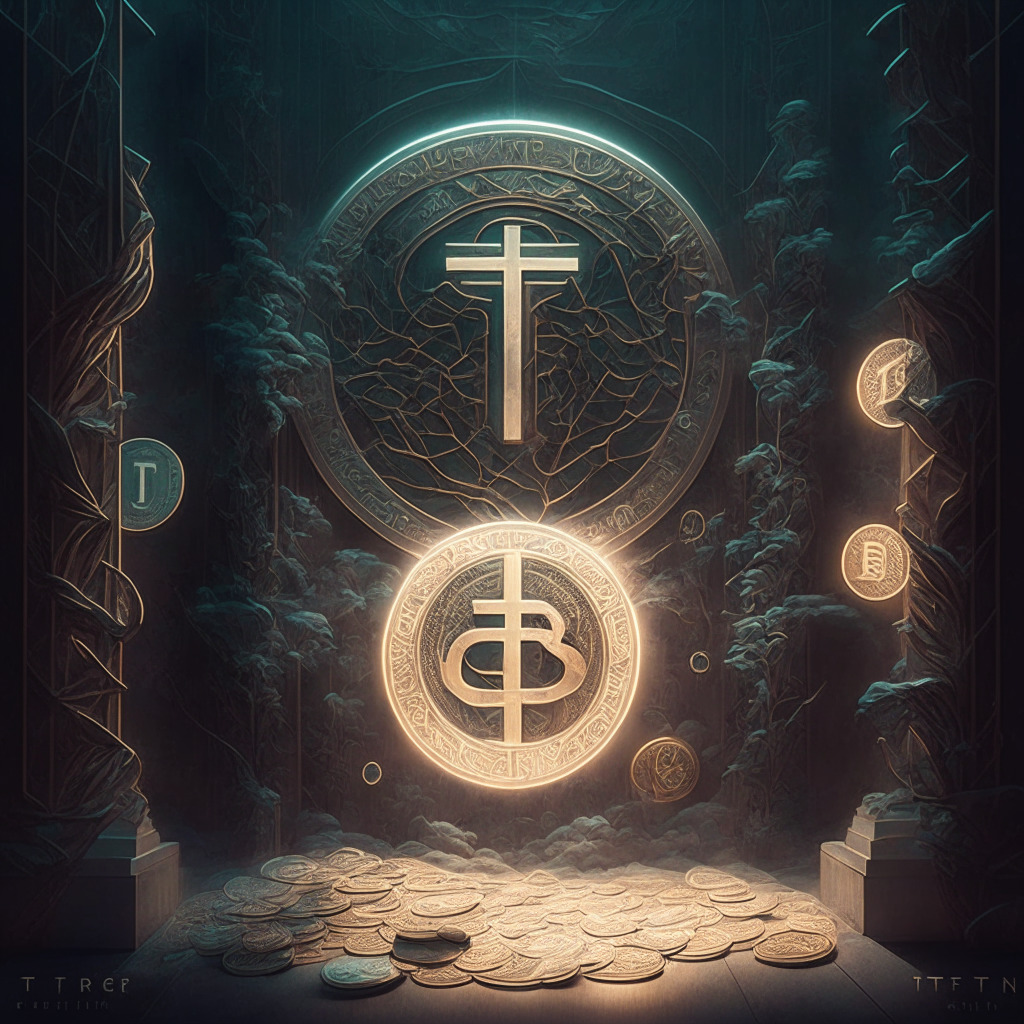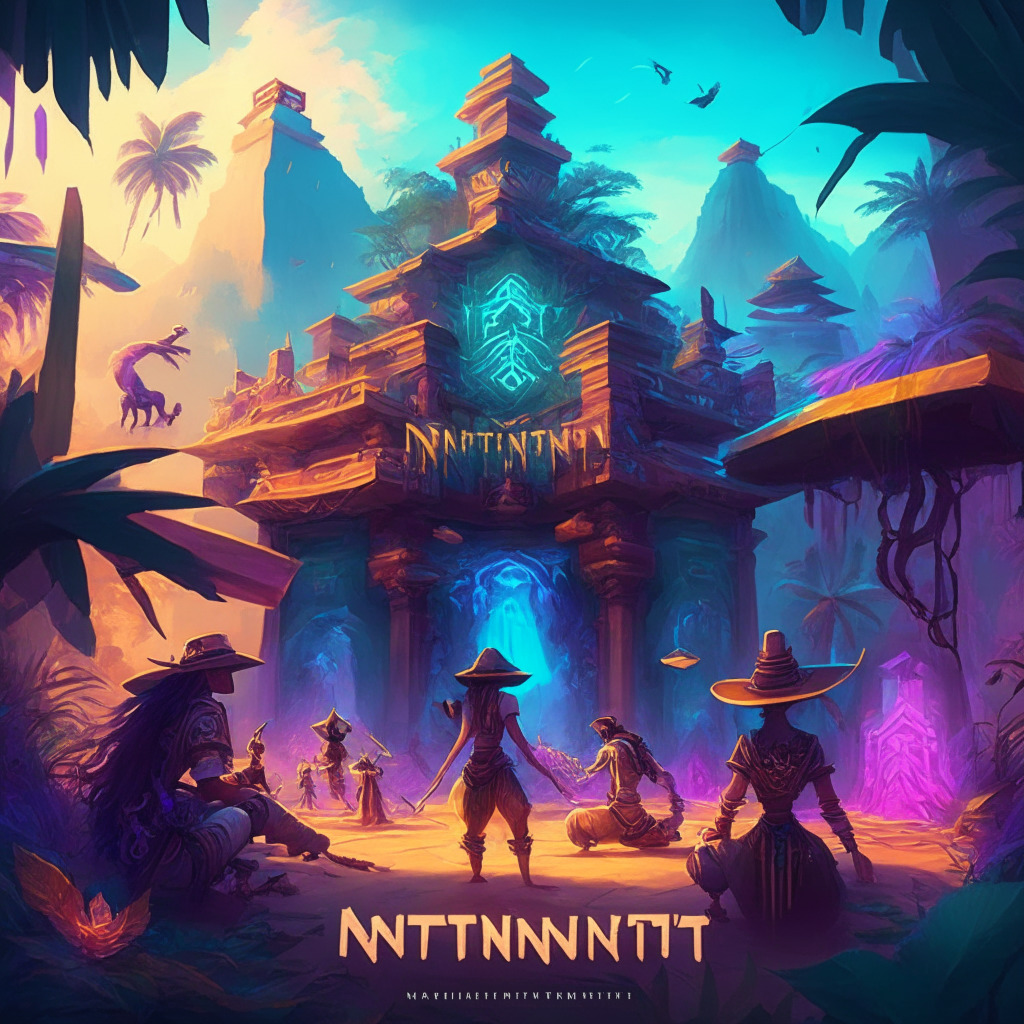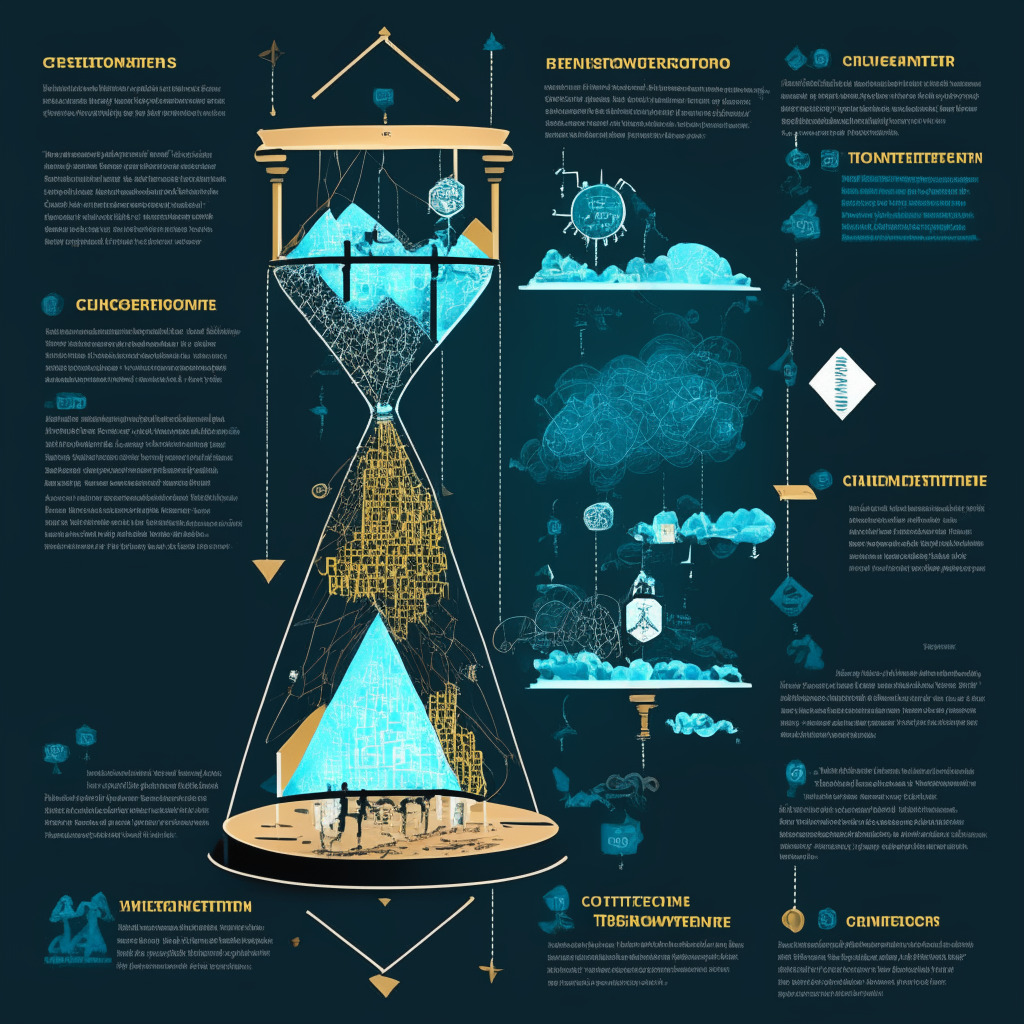The U.S. Treasury’s OFAC has imposed sanctions on Russian firms and individuals, including an Ethereum wallet, for assisting Russia in evading existing punitive measures amidst the Ukrainian conflict. The case underscores the dual nature of cryptocurrencies as convenient cross-border transaction tools and potential means for illicit activities, emphasizing the need for balancing their benefits with security safeguards.
Search Results for: Origin Ether
Ripple Acquires Metaco, Tether’s New Strategy, and the Latest in Crypto Markets and Regulations
Ripple acquires Swiss-based Metaco for $250 million, expanding enterprise offerings and accelerating Metaco’s growth. Tether announces 15% net realized operating profits to be allocated towards Bitcoin purchase for reserve diversification. Meanwhile, Coinbase expands services in Singapore and China issues guidelines for NFT treatment.
Tether Boosts Reserves with Bitcoin: Bold Move or Risky Strategy?
Tether plans to strengthen its reserves by investing in Bitcoin (BTC), moving away from US-based government debts. The stablecoin issuer will regularly allocate up to 15% of its net realized operating profits towards purchasing Bitcoin, citing its limited supply, decentralized nature, and widespread adoption as key factors for the decision. Tether’s approach is similar to Microstrategy’s strategy of replacing the U.S. dollar with Bitcoin in its reserves.
Axie Infinity: Origins Hits App Store with Free Non-NFT Starter Characters & NFT Integration
Axie Infinity: Origins, a modified version of the popular play-to-earn crypto game, is now available on Apple’s App Store with free non-NFT starter characters. Targeting key markets in Latin America and Asia, the game intends to eventually convert these non-NFT Axies into NFTs while also allowing NFT holders to move Axies into the app.
Ethereum Price Dips and Lido Withdrawals: Analyzing the Impact on Blockchain’s Future
Ethereum price dips 0.5% in 24 hours as Lido rolls out withdrawals on its ETH staking platform. Despite the decline, technical indicators suggest a breakout rally. Increased adoption and ETH staking withdrawal availability could drive prices upwards.
Ethereum Finality Hiccups: Analyzing Reactions, Implications, and Future Impacts
The Ethereum network recently faced two instances of technical issues causing confusion and debate among users and developers. These finality issues have raised concerns within the Ethereum community, emphasizing the importance of understanding blockchain technology and safety measures in the cryptocurrency world.
Ethereum Validator Income Soars Amid Rising Gas Fees: Balancing Decentralization vs Rewards
Validators experienced a 40% income boost, raking in $46 million due to increased staking rewards rate on the Ethereum network, driven by the new Pepe memecoin trading. However, concerns rise over rising gas fees and disproportionately benefiting institutional players, potentially compromising decentralization and accessibility for smaller participants.
Cardano Outshines Ethereum and Bitcoin in Daily Development: A Humorous Look at the Battle for Blockchain Supremacy
There is more daily development on Cardano, a smart contract platform, than on any other […]
Unveiling Binance’s $1B Recovery Fund: Generous Aid or Strategic Maneuver?
“Binance’s $1B cryptocurrency recovery fund, the Industry Recovery Initiative (IRI), has reportedly invested only an estimated $30M since its inception, despite large capital commitment. With growing regulatory concerns, unused funds were moved to Binance’s corporate treasury, raising questions about the effectiveness of such recovery initiatives in the evolving blockchain industry.”
A Leap or A Slip? The $1.6 Million CrypToadz NFT Purchase: A Breeding Ground for Wash Trading?
A CrypToadz NFT, normally under $1000, was bought for about $1.6 million, leading to questions about its legitimacy. The indicators point towards potential wash trading, involving a chain of transactions for liquidating dubious funds. This episode underscores the need for vigilance in the evolving cryptocurrency and NFT markets.
The Intricate Web of Illicit Fentanyl Trade Powered by Cryptocurrency
The U.S Treasury’s Office of Foreign Assets Control (OFAC) has targeted several cryptocurrency wallets involved in the illicit trade of fentanyl. Most transactions were conducted via Stablecoins on Ethereum and Tron networks. These wallets, save for one, were hosted on a centralized crypto exchange, allowing the illicit flow of hundreds of thousands of dollars worth of cryptocurrency.
Unwrapping the Mystery: The Power and Pitfalls of Wrapped Tokens in Blockchain
‘Wrapped’ crypto tokens are cryptocurrencies linked to another coin or asset, often native to a certain blockchain. They allow for cross-chain interoperability and decentralised finance applications, enhancing liquidity and accessibility. However, they also raise centralisation risks, potential security issues and regulatory uncertainties.
Decentralized Social Media App Stars Arena Catalyzes Avalanche’s Growth – An Analysis of Pros and Cons
“Decentralized social media application, Stars Arena, a clone of Friend.tech, significantly boosted Avalanche’s network activity, spurring daily transactions by over 186% in two days. However, despite over 10,000 active wallets and $3.26 million trading volume, it falls short compared to Friend.tech’s $44.27 million Total Value Locked, raising questions about its potential.”
Unpacking Project Atlas: A Centralized Perspective on Decentralized Markets
‘Project Atlas’, pioneered by Bank of International Settlements and various European Central banks, is developing a proof of concept system tracking on-chain and off-chain cryptocurrency transactions. The project aims to understand macroeconomic relevance of cryptocurrency markets and decentralized finance, offering transparency and potential risk mitigation.
The Balancing Act of Tokenization: Bridging Blockchain and Traditional Finance Amid Regulatory Challenges
“Tokenization, or representing real-world assets as blockchain tokens, offers advantages like easier asset management. However, firms must comply with regulation standards, understand duties linked to tokenized assets’ public offerings, and regularly audit assets. An adaptable compliance solution is crucial, given the evolving nature of token regulation.”
Scaling Into the Land of the Rising Sun: Arbitrum Foundation and Fracton Ventures Set to Conquer Japan
“Arbitrum Foundation, a supporter of the Ethereum Layer 2 network, is partnering with Fracton Ventures to tap into the Japanese market. The alliance will focus on ecosystem construction and furnish community education, promoting Arbitrum’s adoption by Japanese developers and investors.”
Unleashing Blockchain’s Potential: TradeFinex, SBI and the Balance of Transparency vs Regulation
“SBI Holdings is collaborating with United Arab Emirates’ TradeFinex to foster adoption of enterprise blockchain in Japan. This venture offers blockchain-based financial services and provokes a debate over whether such technology enhances financial transparency or circumvents regulatory oversight.”
PayPal’s NFT Venture: A Bold Leap into Blockchain or a Risk to Decentralization?
“PayPal’s recent patent application for a non-fungible token (NFT) purchase and transfer system boldy underscores the mainstream acceptance of blockchain technology. The filing suggests designs to leverage NFTs for tokenization, far beyond digital collectibles. However, it also proposes off-chain transactions potentially diverging from the philosophy of complete decentralization that attracted enthusiasts to blockchain technology.”
Binance’s Exit and CommEx’s Entrance: The Mysterious Shift of Crypto Operations in Russia
“Binance has exited Russia, selling to newcomer CommEx. Despite little detail about CommEx’s origins, it is registered in Seychelles serving CIS and Asian clientele. Its initial focus is on P2P transactions in Russia with goals to rapidly expand as a cryptocurrency exchange.”
AI vs Human Authored Content: Google’s Policy Shift Raises Questions on Web Knowledge Reliability
“In a significant policy shift, Google now accepts content generated by artificial intelligence (AI). This change brings several issues to light: defining quality content, distinguishing between human and AI-written work, and the reliability of AI-produced content. This shift may escalate unchecked and unsourced information on the internet.”
Innovative Incentives or Short-Term Opportunism? Trader Joe’s Ambitious Proposal for Arbitrum DAO
Trader Joe, a leading decentralized exchange operating on the Avalanche blockchain, aims to strengthen its liquidity through a 1.83 million ARB grant from Arbitrum DAO. The DEX intends to contribute to the growth of the Arbitrum ecosystem using its innovative Market Making Incentives Program and Auto-Pool product. Implementing this strategy, Trader Joe will promote development and innovation within the Arbitrum ecosystem, fostering community-first relationships.
Overcoming MetaMask’s Gas Fee Glitch and Blockchain’s Role in Verifying the Next Moon Landing
A glitch that overcharged MetaMask users on opBNB gas fees has been rectified. Originally, MetaMask’s default fee, calculated on an average of networks, failed to align with opBNB. To address this, MetaMask altered their algorithm to accurately display the network’s fees.
Terra Luna Classic’s Surprising Uptrend: A Pitfall or the Path to Revival
Despite a disaster last May, Terra Luna Classic (LUNC) shows inspiring performance in the crypto market. This upward trend is linked to a vote to cease the production of new LUNC tokens. However, considering a possible retest of last June’s all-time low, investors may need to exercise caution. Presales might be a promising alternative for high-risk takers. The crypto market has immense risks and investors must make their decisions diligently.
Sky-High Interest Rates: An Unavoidable Future in Cryptocurrency Markets
“Sky-high interest rates are becoming a necessity in the cryptocurrency market as reliance on central banks erodes. The rising forecast for the Federal Funds Rate signifies a lasting high interest rate scenario, significantly impacting crypto markets. Therefore, focus must shift towards thorough assessment of the crypto ecosystem and its offerings.”
Optimism Network’s Major OP Tokens Private Sale: Economic Genius or Price Plunge Catalyst?
“Optimism Network plans to sell 116 million OP tokens via a private sale, expected to generate $160 million. The tokens are drawn from the unreserved portion of the OP token treasury and are subjected to a two-year lock-up period. This strategic approach aims at expanding Optimism’s market reach responsibly without affecting the token’s value.”
Mark Cuban’s $870,000 Loss: A Cautionary Tale Against Crypto Phishing Scams
Dallas Maverick owner, Mark Cuban, lost approximately $870,000 in various tokens due to a phishing attack. Phishing attacks in the crypto industry mislead users into exposing sensitive information or downloading malicious software, leading to significant financial losses. A counterfeit MetaMask wallet application initiated the fraud. Users are advised to exercise extreme caution, verify sources and conduct due diligence to avoid such incidents.
Exploring Bitcoin BSC – Bitcoin’s New High-Yielding Staking Alternative
Bitcoin BSC, a new staking cryptocurrency, has recently secured over $2 million during its presale now offers a potential better risk-reward than Bitcoin due to its yield-generating staking feature. Unlike other Bitcoin alternatives, Bitcoin BSC operates on a cost-effective BNB Smart Chain network. It offers transparency, audited smart contracts, and guaranteed liquidity upon listing on Uniswap’s decentralized exchange.
Accidental Bitcoin Windfall: To Return or Not to Return? An Ethical Dilemma in Crypto Mining
“A Bitcoin miner named Chun received an unexpected reward of 20 BTC for validating a 0.008 BTC transaction from crypto exchange Paxos due to a system fault. A debate ensues within the crypto community whether Chun should return the erroneous windfall.”
Bitcoin BSC: The New Crypto Underdog on the Verge of Making Millions?
“Bitcoin BSC, mirroring Bitcoin’s original model with only 21 million tokens, stokes investor interest with its $0.99 pre-sale price and benefits of the BNB Smart Chain. Propelled by the success of ‘2.0 coins,’ its valuation rapidly increased to $700,000 within days, hinting at potential substantial growth once launched on decentralized exchanges. Exercise caution when investing.”
India’s Paradoxical Supremacy in Global Crypto Index: High-Tax-Averse or Accelerator?
“India has topped the Global Crypto Adoption Index 2023, despite strict tax regulations on crypto trades. The tax schemes paradoxically stimulating a shift in transaction methods, thus driving the adoption of digital currencies, particularly in struggling economies like India, Nigeria, and Vietnam.”
Telegram’s Intertwined Saga with TON: Scandal, Redemption, and a Future in Balance
“Telegram has extended support for the TON network, boosting its token price by 7%. Once abandoned amid legal issues with the U.S. Securities and Exchange Commission, the TON blockchain was redeemed by community members who formed the TON Foundation.”
FTX’s New Playbook: Balancing Market Transparency and Strategic Interests in Crypto World
“FTX, a major crypto exchange, has revised its asset sale plan in response to U.S. Trustee concerns, without committing to disclose impending transactions. This move is causing a dip in crypto prices due to fears of a large-scale asset sell-off.”































